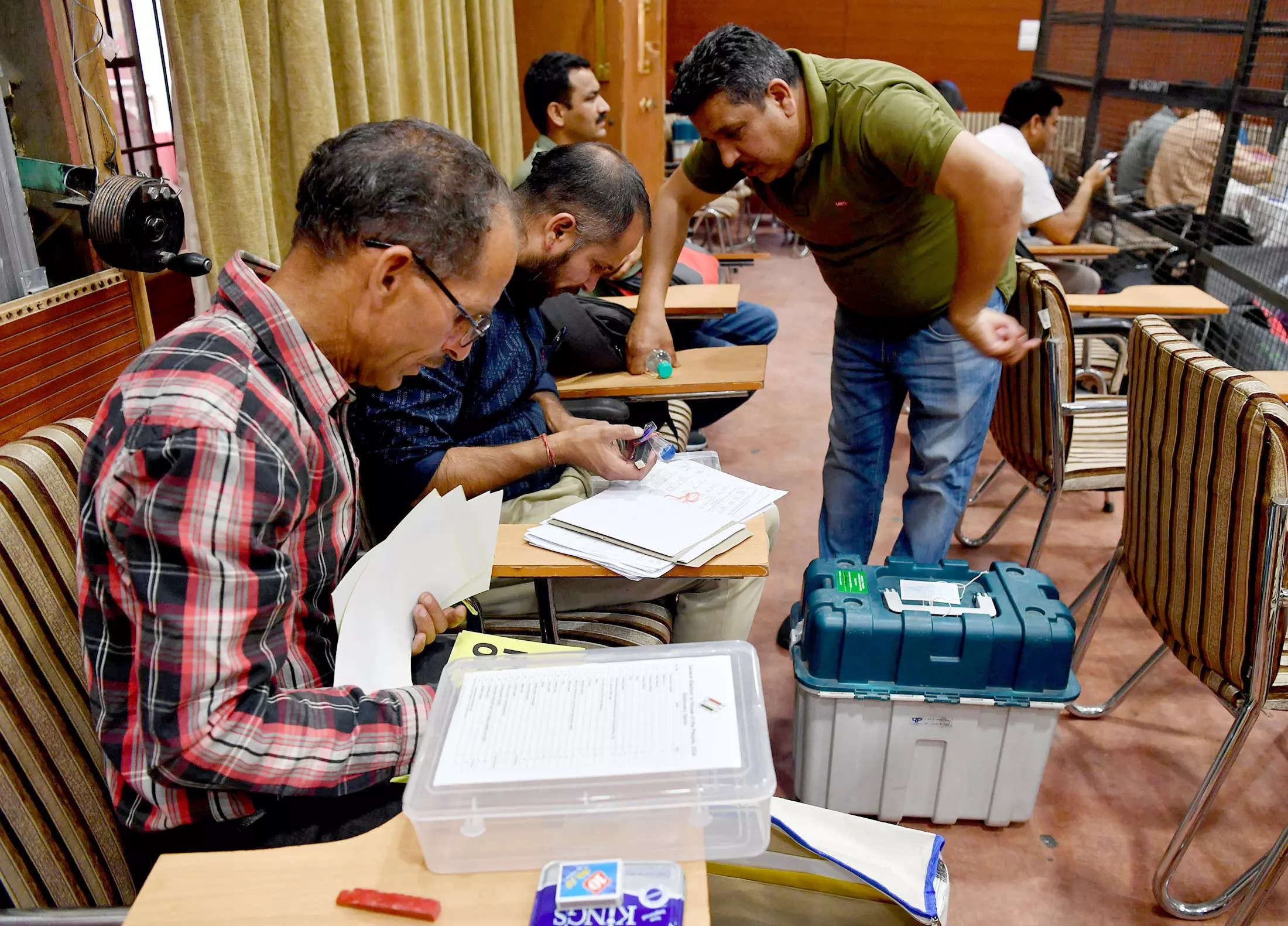
The Election Commission of India (ECI) has received eight applications from aggrieved candidates, including those from the BJP and the Congress, for verification of tampering or modification in micro-controller chips embedded in the EVMs post declaration of Lok Sabha election results on June 4. Terming the suspicion of manipulation of the electronic voting machines “unfounded”, the Supreme Court had on April 26 rejected the demand for reverting to the old paper ballot system.But at the same time, the top court had opened a window for the aggrieved unsuccessful candidates securing second and third places in the poll results and allowed them to seek verification of micro-controller chips embedded in five per cent EVMs per assembly constituency on a written request upon the payment of a fee to the poll panel.
BJP’s Ahmednagar (Maharashtra) candidate Sujay Vikhe-Patil has sought verification of the machines from 40 polling stations.
Vikhe-Patil had lost to Nilesh Lanke of NCP (Sharad Pawar) faction.
A YSRCP and a DMDK candidate too have applied for the verification, according to data shared by the poll panel.
According to the EC, eight parliamentary seats spread across six states are involved. The total number of polling stations for which verification has been sought is 92.
Candidates who come second or third and seek verification of the EVMs will have to pay Rs 47,200 per EVM set, according to the standard operating procedure issued by the EC on June 1.
According to the EC’s Standard Operating Procedure (SOP), the cost submitted by manufacturers BEL and ECIL to carry out EVM “check and verification” is Rs 40,000 (plus 18 per cent GST) per set of EVM.
“In addition to the cost incurred by the manufacturers, there are also administrative costs like cost of labour to shift the units, CCTV coverage, electricity charges, videography costs and various other operational costs at the district election officer level,” the document said.
It, however, said to make the verification process “more accessible” and inclusive in compliance to the referred mandate of the Supreme Court, it is decided that instead of going purely by the actual economic costs incurred, the administrative expenditure on EVM verification will be treated as “election expenditure and borne by the central or state government, as the case may be”.
“Accordingly, the administrative charges will be waived for the applicants — the same shall not be charged to the applicants,” it noted.
The charges for EVM verification to be paid by the applicant candidate is for the current financial year 2024-25 — till March 31, 2025, it said.
An EVM set has at least one Ballot Unit, one Control Unit and a VVPAT machine.
Separately, YSRCP and BJD candidates from Andhra Pradesh and Odisha respectively have also applied for EVM check following the announcement of assembly results on June 4.
Assembly polls in Andhra Pradesh, Odisha, Sikkim and Arunachal Pradesh were held along with the Lok Sabha elections.
In the verification exercise for assembly poll results, total assembly constituencies involved are three where verification has been sought in 26 polling stations.
According to the SOP, the concerned state chief electoral officer (CEO) was required to communicate to the manufacturers the consolidated list of applicants within 30 days of the date of declaration of results — by July 4. The CEOs have already conveyed the same to the manufacturers 15 days ahead of the schedule, the EC said.
The technical SOP enumerating the methodology and steps for checking and verification of burnt memory/ micro-controller of the EVM units will be issued by the EC in due course.


